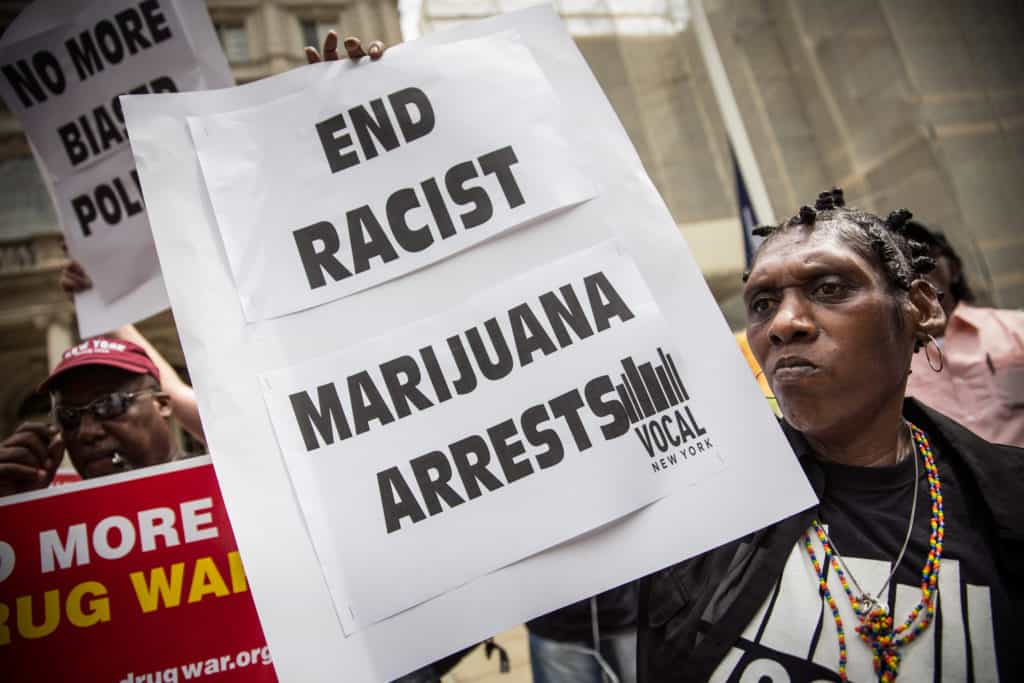
By Dan Murphy
Last month, Gov. Andrew Cuomo delivered a speech previewing his plans and the plans of the democratic majorities in the Assembly and State Senate, which includes the legalization of marijuana. “The fact is we have had two criminal justice systems: one for the wealthy and the well off, and one for everyone else,” he said. “Let’s legalize the adult use of recreational marijuana once and for all.”
In Westchester, several public discussion groups on the possibility of marijuana legalization in the state took place last year. Those meetings came after the NYS Department of Health issued a report that concluded that the benefits of taxing and regulating the drug outweigh any negative effects, and that marijuana criminalization “has not curbed marijuana use despite the commitment of significant law enforcement resources.”
The report also found that legalization would let the state “better control licensing, ensure quality control and consumer protection, and set age and quantity restrictions,” as well as provide hundreds of millions in tax revenue to the state every year.
New York would be the 11th state to legalize marijuana if it passes in 2019. Recreational marijuana is legal in Alaska, California, Colorado, Maine, Massachusetts, Michigan, Nevada, Oregon, Vermont, Washington, and Washington, DC.
The three primary arguments that supports legalization are that the current criminal enforcement of marijuana laws unequally prosecutes persons of color, the narrative that marijuana is a gateway drug that leads to the use and abuse of opioids is fake news, and the revenues from legal pot cold be used for a number of projects in the Empire State.
A New York Times investigation last year found that the “surest way to face marijuana charges in New York” is to be black or Latino, and criminal justice reform groups and a majority of New Yorkers do not believe that the best way to use police resources, and incarcerate young adults, is with pot arrests.
Westchester County Legislator Christopher Johnson recently penned an op-ed in Rising newspapers which read: “The continual prosecution of these infractions unnecessarily and unfairly introduces black and Hispanic individuals to the justice system, all the while setting different standards for their white peers. Please note, the intent of this letter is not to discuss the pros and cons of the potential legalization of marijuana, it is singularly to implore you to cease the prosecution of those found in possession of low-level amounts of marijuana.”
The “fake news” about marijuana, which has been proclaimed by republicans and democrats alike – including the governor as recently as two years ago, is that marijuana is a “gateway drug” that leads to the abuse of harsher drugs, which has never been proven. In fact, marijuana is now being used as an alternative and replacement for opioids and to prevent the use and abuse of heroin and fentanyl.
Revenues from legal pot, estimated to be between $248 million and $677 million in new tax revenue in its first year in New York, could be used for the crumbling subways and the MTA.
Some have criticized Cuomo for his about-face on legal pot, and have questioned his reasons for doing so, tying them to his possible run for president next year. For years, Cuomo rejected the idea of permitting medical marijuana, declaring as late as 2013 that its dangers overshadowed its benefits. He eventually supported a limited medical marijuana plan for New York in 2014, which remains in effect today.
In 2017, the governor said he considered marijuana a “gateway drug,” but after receiving a progressive challenge in a democratic primary for governor last year from actress Cynthia Nixon, who supported legalization, in 2018 Cuomo said that the “facts have changed” around the drug and acknowledging its legalization in Massachusetts.
Most police unions and police commissioners claim that legalizing pot could be a problem, and claim that the reasons persons of color are arrested for pot at higher rates is because more residents in predominantly black and Hispanic neighborhoods were calling to complain about marijuana. Pro-legalization groups like Marijuana Majority point to research, which found “there is no good evidence” that marijuana arrests in New York City are associated with reductions in serious crime.
But a majority of New Yorkers favor legalization and do not want their resources used to arrest and incarcerate anyone for pot possession or smoking in public. A Quinnipiac University poll in May showed that 63 percent of New Yorkers favored legalizing marijuana.
New York City Mayor Bill de Blasio supports legalization but said he does not want smoking in public to be legal. The real question is: Once pot is legal in New York, who will be the first politician to smoke in public? At that point the taboo over marijuana will finally come to an end.





